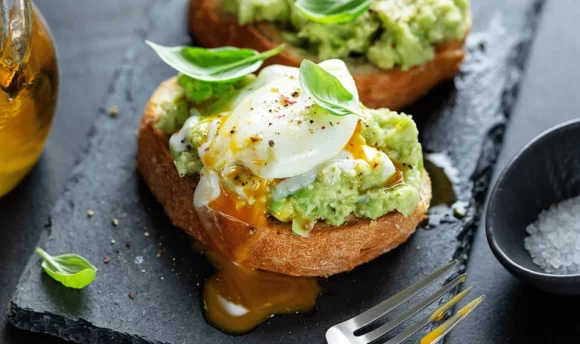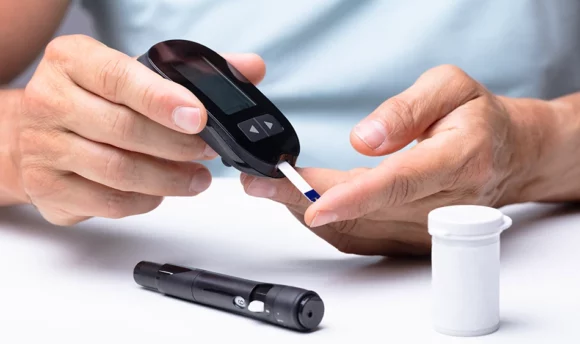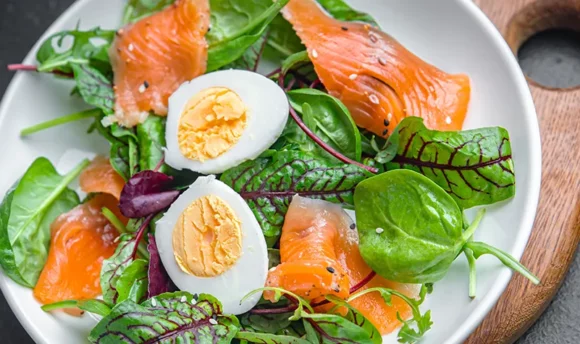Can You Build Muscle on Keto? 5 Tips on How to Increase Mass
Looking for new ways to lose weight while simultaneously building muscle? Following one of the popular low-carb diets like keto might be the perfect solution.

Many people have the same fitness goal – to build muscle and lose body fat. With so many people turning to dieting to help them reach their fitness goals, low-carb diets like keto are becoming increasingly popular.
If you know anything about the ketogenic diet, you likely know that it works by putting the body into ketosis. And while ketosis is great for losing weight, anyone looking to increase their gained muscle mass might be left wondering if it’s as effective for building muscle.
In this article, we will do a deep dive into the effectiveness of the keto diet in helping you build muscle and provide some much-needed tips on how to make your experience with keto a positive one.
Can You Build Muscle on a Keto Diet?
Yes, it’s definitely possible to build muscle on keto. As long as you are intentional about getting enough protein and implementing some of the expert tips and tricks mentioned in this article, you should have no problems retaining and even gaining muscle while doing keto.
How to Bulk on a Keto Diet
Simply put, bulking is the muscle-building phase of a workout and eating routine. It’s usually a 4–6 month period where a person eats more calories than their body needs and focuses on weight training exercises to vastly improve muscle mass.
Because of this, if your goal is to bulk on a ketogenic diet, there are a few things to keep in mind, such as how much protein you are consuming and your overall caloric intake. Tracking these macronutrients can keep you from under or overconsuming calories, which might affect your keto gains.
Below, you’ll find more detailed information about the best way to eat while following a ketogenic diet.
#1 Increase protein intake
When beginning a ketogenic diet, many people simply believe it is a low-carb diet. However, with only reducing carbs, building muscle on keto would prove to be a challenge.
Adequate protein intake is an essential component of growing your muscles and overall success while doing keto. A low-carb diet alone might not provide the results you’re looking for, but adding the proper amount of protein to your diet will encourage fat loss and exponentially boost muscle growth.
The reason for this is that protein is the building block of our muscle tissues and is essential for the creation and reparation of our cells. Without the proper protein, your body won’t have the essential amino acids necessary to build bigger, stronger muscles.
Eating a high-protein can also help suppress your appetite, curb cravings in between meals, and keep you feeling full for longer. All of which can make a big difference when trying to lose weight and build muscle.
#2 Eat enough good fats
Eating a low-carb, high-fat diet doesn’t mean eating foods that aren’t healthy for you. Although fat takes a bad rap, healthy fat intake is important for brain function, energy levels, and concentration and can even affect sleep.
Not to mention that since you are cutting off your body’s usual food source – carbohydrates – it becomes essential that you provide it with a new source of clean energy. By following a ketogenic diet, you will put yourself into ketosis, a state in which your body uses fat for fuel instead of carbohydrates.
Eating healthy foods that are high in fat will ensure you have the energy you need to continue working out and being productive in your daily life, making your keto experience more positive.
Some good sources of fat on a keto diet include avocados, chia and flax seeds, fatty fish such as salmon, and olive oil in moderation. Other sources to increase your fat intake can be easily derived from dairy and animal products such as eggs, milk, and yogurt.
#3 Cut the carbs
In the previous section, we talked about how on a keto diet, the body changes its energy source from carbs to fat. This switch is why many people successfully lose body fat very quickly during ketosis.
While carbohydrates are effective fuel for the body, they are an energy source that is quickly used up. This is why you often quickly become hungry after eating a high-carb diet.
On the other hand, the keto diet provides the body with fuel sources that take longer to be broken down, like protein and fats, which can provide many health benefits in improving body composition, including muscle gain.
If your goal is to use a ketogenic diet to lose weight, then you must be mindful of your carb intake. Eating too many carbs will put your body out of ketosis, effectively stunting the benefits of this eating style.
#4 Avoid cardio exercises
Exercises that focus on cardio, such as running, swimming, and jumping rope, are not very effective at building muscle on a keto diet. This is because most cardio exercises rely on carbohydrates as fuel for your muscles, so you will quickly deplete your energy sources when doing cardio-related exercises.
Instead, it’s best to focus on strength training, as it is an extremely effective way to build muscle and doesn’t rely on carbohydrates for energy.
Lifting heavy weights and implementing progressive overload is an effective way to speed up your progress. Strength training can also increase your ability to maintain muscle mass.
#5 Consider taking supplements
When you are on a keto diet, it can be hard to eat the same nutrient-rich foods since you will be limited in the number of fruits and vegetables you can consume. Because of this, supplements can be very helpful in ensuring your body gets all the vitamins and minerals you need to feel your best.
Creatine is a very effective option for anyone wanting to build muscle. This vitamin usually comes in powder form and supports increased ATP, which is a fuel source by your body that is generally derived from carbohydrates.
You might also consider a supplement that contains amino acids to boost your immunity, aid your digestion, and repair any damaged tissue.
Additional vitamins that support body functions while in ketosis include vitamin C for immune support, magnesium, which assists sleep patterns and mood stabilization, and omega-3 fatty acids, which are crucial for brain function.
Here is a list of supplements that will help you grow muscles:
- Omega-3
- Creatine
- Whey protein
- MCT oil
- Vitamin C
- Vitamin D3
- B complex vitamins
- Electrolytes
If you like the idea of using supplements but aren’t sure where to start, using a keto-specific supplement could be a great option. These are supplements designed to help kickstart your journey on keto and contain the perfect ratio of vitamins and minerals to help you.
Other Tips to Gain Muscle Mass While on the Keto Diet
Weight loss using the ketogenic diet doesn’t only depend on what you eat. Below, you’ll find other holistic lifestyle changes you can make to make your experience on keto a positive one.
#1 Cut out alcohol
If you’re serious about seeing results while following the ketogenic diet, cutting out alcohol will be an important step. Although certain alcohols like wine and spirits are low in carbs, they can still affect your body’s ability to stay in ketosis.
Not to mention that alcohol is high in empty calories and increases the likelihood of you eating a cheat meal, which effectively ruins your potential muscle building.
#2 Get more sleep
Increasing the amount of sleep you get each night, even by an hour, can create noticeable differences in muscle growth. When you enter the REM (rapid eye movement) cycle, your body releases more growth hormone, which can help with muscle repair.
Not only that, but getting more sleep increases the number of amino acids being released into the bloodstream.
Since amino acids are the building blocks for muscle fibers, anyone whose goal is to build muscle on keto will benefit from having more of them in circulation, as they’re essential for maximizing muscle growth.
#3 Calculate and increase your calorie intake
If you’ve been doing keto for some time and aren’t able to build muscle, it could be time for you to increase your calorie intake.
However, this step should only be taken once you have a clear understanding of the number of calories your body needs for maintenance, as you also don’t want to start gaining unnecessary weight.
Using this calculator, you can find out your daily calorie requirement based on your height, body weight, and age.
You might find yourself gaining muscle more quickly by increasing your caloric intake, depending on your activity level. Ensure you nourish your body with nutrient-dense foods and monitor your progress.
#4 HIIT and HIRT exercises are the key
There are many health benefits to adding HIIT and HIRT workouts to a keto diet to promote muscle gain. Some of these benefits include balancing hormone levels, improving mood, decreasing cortisol which can affect fat storage, and improving insulin resistance.
A benefit of doing body weight workouts like HIIT and HIRT is that they still offer some of the same benefits as cardio but are better suited for building and maintaining muscle. As with any workout routine, ensure you get adequate rest in between workouts to maximize your muscle-building potential.
A Word From Our Nutritionist
If you’re looking to build muscle, the ketogenic diet can be a great option. But that doesn’t mean it’s the only diet option for those looking to enhance their weight loss and maximize muscle growth.
Unfortunately, there is no one-size-fits-all when it comes to dieting. Some people thrive while on the keto diet, experiencing endless energy, shedding pounds with ease, and feeling like their best selves. But that can’t be said for everyone.
When starting the keto diet, expect to feel sluggish and tired for the first 3–14 days, but after that, the negative symptoms should resolve, and you should be left feeling more energized.
If you still feel negative symptoms, it’s not a bad idea to give yourself a full 6 weeks to see if your body eventually adapts.
Everyone is built differently, and if the ketogenic diet isn’t for you, then that just means that there is another healthy dieting style that will help you reach your unique fitness goals without having to sacrifice feeling good.
FAQs
Some reasons you might be losing muscle on the keto diet are inadequate amounts of protein or eating too far into a calorie deficit. Another reason could be that you are missing vital nutrients that can easily be added back to your diet by diversifying it or taking supplements.
The idea that it’s difficult to build muscle on the keto diet is mostly a myth. When done correctly, it is quite easy. If you’re struggling to gain muscle, chances are you are not eating the proper proportions of protein and fats.
Conclusion
Overall, it is possible to build muscle on a keto diet while also losing body fat and feeling like a better version of yourself.
Things like increasing your fat and protein intake, limiting your carb intake, and focusing on strength training exercises instead of cardio workouts is a great place to start if you want to increase your muscle gain.
It’s also a good idea to take supplements to ensure you get all the macro and micronutrients your body needs to feel its best.
Try to give yourself at least 6 weeks on the keto diet before deciding whether or not it’s the right choice for you.

















































 Select your language:
Select your language: 








